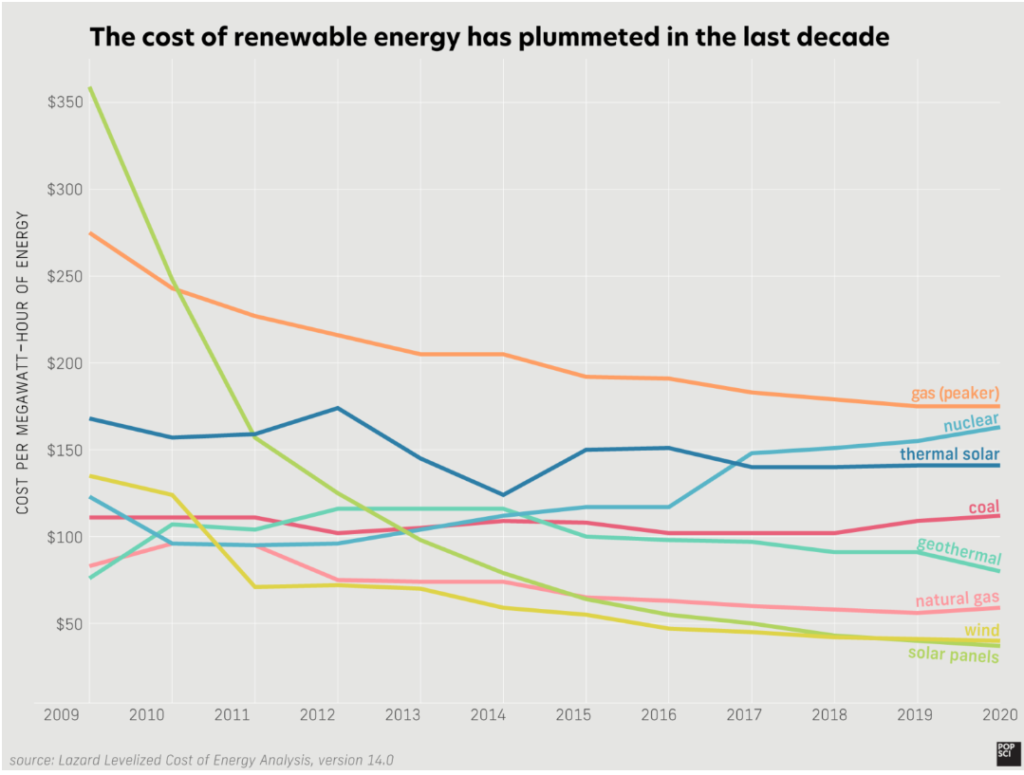Climate Action
Climate Action Is Now the Best Pathway to a Strong Economy
September 2, 2022
Investing In Our Planet is the most sensible option for our finances, our families, and our futures.
Many states and cities hold back from investing more in renewable energy sources under the misguided notion that it’s just too expensive. What they fail to consider, though, is that investing in renewable energy is actually more cost-effective in the long run through saving money, creating jobs, and mitigating the costs of climate change.
High upfront costs often seem to form a barrier to investing in renewable energy. However, renewable energy costs have fallen dramatically since the early 2000s. In the past ten years, the cost of solar energy has decreased tenfold, while wind energy has gotten three times cheaper. Renewable energy is rapidly becoming more affordable and is now often the most cost-effective source of energy for homes, businesses, and public institutions. In fact, it is now cheaper to build a new large-scale solar farm than to run existing coal or gas-fired plants in many countries. This is something that the US should not ignore, given that it spends an estimated $37.5 billion on fossil fuel subsidies yearly, money that could be going to research and development of renewable energy projects.
These trends in clean power have been instrumental in revolutionizing energy infrastructure. 2021 was a record-breaking year for cities investing in renewable energy; local governments signed more new clean power deals than ever before, marking five years of year over year growth. Some municipalities have already begun to reap the economic benefits of their energy transition, and many more are on track to save millions of dollars in taxpayer money from this investment.
The success of these projects proved to be an effective case study, allowing for similar plans to be implemented on a national scale. On August 16, 2022, the United States made the largest climate investment in its history via the Inflation Reduction Act, which contained $369 billion in funding for renewable energy projects, electric vehicle expansion, and climate justice. Carbon emissions are expected to drop by about 40% compared to 2003 levels as a result, while simultaneously creating over 9 million new clean energy & environmental jobs. The Inflation Reduction Act will even pay for itself by generating an estimated $300 billion surplus, all without having any effect on most Americans’ taxes.
This landmark US climate law comes at a critical time. The economic consequences of climate change are on track to cut the world economy by $23 trillion by 2050. To put that into perspective, that’s about $1.5 million every minute, or $26,047 every second. This doesn’t have to be the case. Climate action can lead us to a brighter future. An investment in our planet is an investment in our people—the future of our health, wealth, and the prosperity of all citizens depends on our commitment to put in the effort now and reap the rewards later.
Get started right away and join our global environmental movement:

